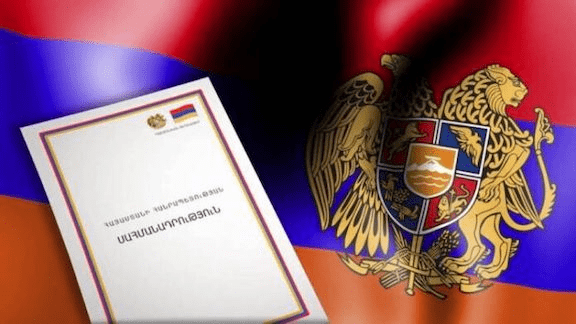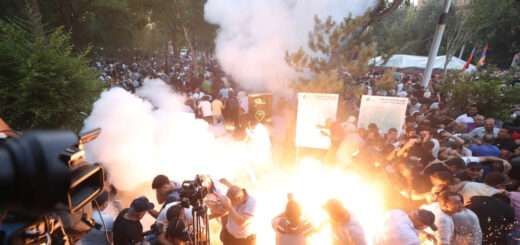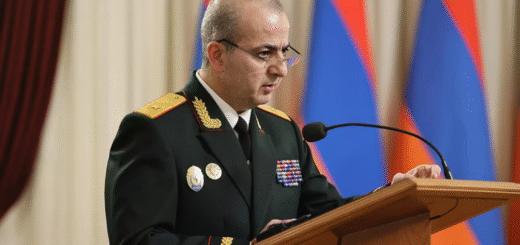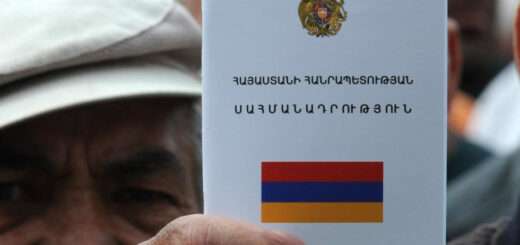Touting Himself as ‘Defender’ of Democracy, Pashinyan Says People of Armenia are Guided by ‘Stalinist’ Worldview

Armenia’s Constitution and Coat of Arms
Prime Minister Nikol Pashinyan on Tuesday said he and his government were sole “defenders” of democracy in Armenia, while the rest of Armenian society was guided by a Stalinist worldview.
Pashinyan made the statement at a panel for democracy in Yerevan, while attempting to tout his plans to amend Armenia’s Constitution, a demand being set by President Ilham Aliyev of Azerbaijan as a precondition for signing a peace agreement with Armenia.
“Who is the leader and defender of democracy and the bearer of democratic values in Armenia?” Pashinyan asked. “The current government [of Armenia] is the defender of these values,” he emphasized.
Then he went of to claim that the entire Armenian society is living by a “patriotism model advanced by Stalin, [Nikita] Khrushchev and [Leonid] Brezhnev, and the Stalinist worldview,” referring to Soviet leaders who succeeded the notorious Josef Stalin, under whose rule Artsakh was place within the Azerbaijan SSR as an autonomous oblast.
“After all, we are guided by the same theories that Stalin formulated. Our thought process is derived from the expressions and viewpoints that he instilled. Today, there are no democratic protections,” Pashinyan said.
In the same presentation, Pashinyan again railed against the opposition and his predecessors, Levon Ter-Petrosian, Robert Kocharian and Serzh Sarkisian. He continued his crusade against the Armenian Church and Catholicos Karekin II, despite not having any Constitutional authority to meddle in Church matters.
Pashinyan had announced over the weekend that a referendum for a new Constitution will be held after the scheduled parliamentary election in June, 2026.
Speaking at the democracy forum on Tuesday, Pashinyan said that Armenia’s new constitution must create a legal connection between the people and the legal order.
He said that the current various constitutions in Armenia have never enjoyed the support of the majority of the population, and they were, in essence, unpopular, saying the law of the land in Armenia is oppressive.
“The current constitution and legal order in Armenia are as hateful to the people as those adopted by the Soviet Union, the Russian Empire, and the Ottoman Empire; this is an imposed agenda,” Pashinyan declared.
He went on to say that the adoption of a new constitution will enable the country to overcome the main problem of Armenia’s democracy, in particular, the disconnect between the judicial system and the people.
According to Pashinyan, the current judicial system of Armenia lacks an “organic link” with the country’s society. It operates in isolation, and this, in turn, undermines trust in it.
“The power belongs to the people, and any power must stem from them. Today I see a serious systemic problem. The judicial system in Armenia does not stem from the people and is completely separated from them,” Pashinyan said.
He emphasized that until this problem is resolved, it is simply impossible to ensure the full development of democracy in Armenia.





